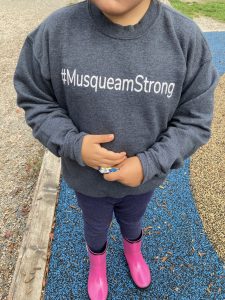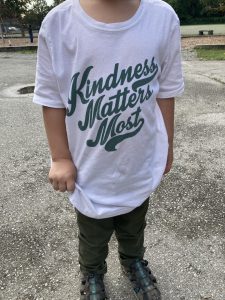I. General Information
School Name: Southlands
School District: SD#39 Vancouver
Inquiry Team Members: Margaret Paxton mpaxton@vsb.bc.ca
Joanna Wood jmwood@vsb.bc.ca
Alexandra De Montigny ademontigny@vsb.bc.ca
Wendy Phung wphung@vsb.bc.ca
Inquiry Team Contact Email: mpaxton@vsb.bc.ca
II. Inquiry Project Information
Type of Inquiry: NOIIE
Grade Levels Addressed Through Inquiry: Primary (K-3), Intermediate (4-7)
Curricular Areas Addressed: Not applicable
Focus Addressed: Indigenous understandings (for example, Traditional Knowledge, oral history, reconciliation), Core competencies (for example, critical thinking, communication, problem solving), First Peoples Principles of Learning, Indigenous pedagogy, Social and emotional learning
In one sentence, what was your focus for the year? Our focus shifted from trying to bring in Indigenous language and culture to how to help our students feel more welcome and comfortable at school. How can we make school a more hospitable place for Indigenous (and all) students?
III. Spirals of Inquiry Details
Scanning: Our scanning told us that our students enjoyed being part of experiences that reflect their culture. Our scanning also told us that some Indigenous students (typically intermediates) did not feel connected to staff members, including teachers.
Focus: As it became challenging to always seek support/cultural experiences/speakers from outside the school, we asked ourselves what can we do, what do we have within us? Mid-year, we shifted the focus to be on relationships with individuals, to build trust and comfortability. We used the 2 x 10 strategy, empathy interviews, tea with the teachers, beading club, and pizza with the principal, for some examples, as ways to build relationships and increase the sense of belonging.
Hunch: Our hunch was that if students truly felt seen and cared for, that they would feel more comfortable at school and more able to take risks in their learning. We saw that when learning became more challenging, students shut down and did not have the confidence to persevere. We thought that if they felt more safe and supported, they could take more risks.
New Professional Learning: We attended the meetings of the VSB NOIIE teams and learned from each other. We read books such as The Listening Leader by Shane Safir. We accessed the staff of the Indigenous Department at VSB and learned about making drums and drumming protocols. We also attended the Indigenous Allies and Leads meetings to learn more about resources, opportunities and initiatives.
Taking Action:
- Small group “Tea with the Teacher”, in 2 classes weekly
- “Pizza with the Principal”, several times during the school year
- Empathy Interviews with 2 – 3 students/intermediate class
- 2 x 10 (2 minute conversation with a student 10 days in an row) with 1 – 2 students/class
- We learned the names of students’ pets
- We made phone calls and arranged face to face meetings with parents/guardians
- We submitted a Southlands Student Profile and photograph to the Musqueam Newsletter every other week
- In two classes we had weekly lessons on Mindfulness, Brain Science, the Science of Stress, Happy Hormones and How to Hack Them, circle games and community building activities
- In one class we had daily lessons in Self-Regulation (Shanker) and Emotional Literacy
Picture Description: Musqueam Strong (left), Kindness Matters Most (middle), Students with Musqueam Flag (right)
Checking: When we spoke about certain individual students, we noted increased eye contact with adults, smiles, verbal greetings reciprocated, sharing about home and family, and some improvement in academic engagement.
Reflections/Advice: We felt that the “lens to mirror” pivot made sense for our school: Looking to what we had control of and what capacities we had already, rather than looking for experts from outside the school to come in and educate us. We will continue this work, one student at a time.
In 2022 – 2023 we will read about and practice the other pivots as described by Shawn Ginwright: transactional to transformational relationships, problem fixing to possibility seeking, and hustle to flow.



